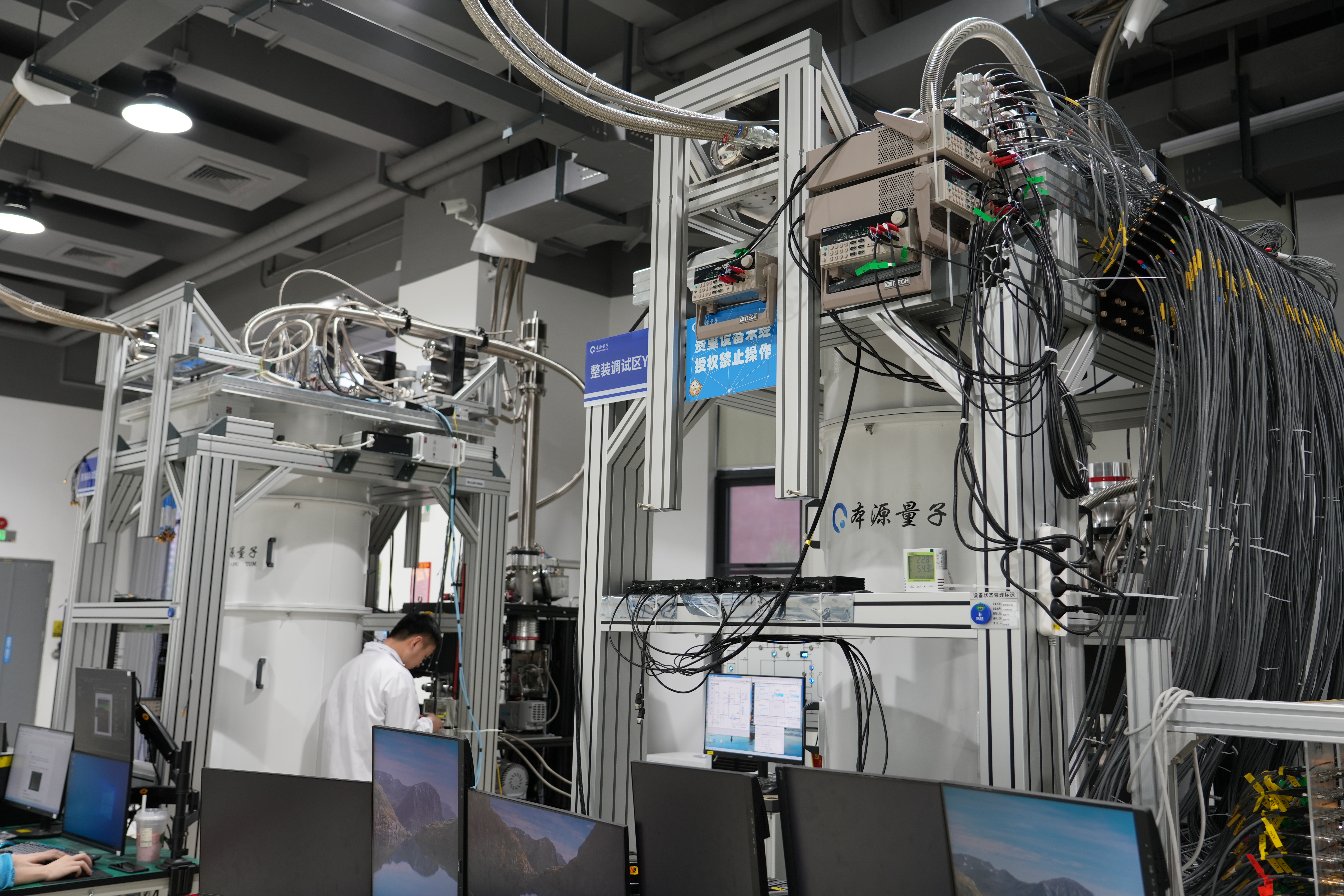'Origin Wukong' Ushers in China's Quantum Computing Era

Photo taken by Science and Technology Daily.
By Staff Reporters
On January 6, 2024, China's home-grown third-generation autonomous superconducting quantum computer Origin Wukong commenced operations, offering limited-time free access to global users.
In just three months, Origin Wukong had notched up over 8 million remote visits from 120 countries worldwide, completing approximately 180,000 global quantum computing tasks. This marks China's official entry into the era of accessible quantum computing, signifying the completion of China's indigenous superconducting quantum computer manufacturing chain.
Scientific legacy
The inception of China's quantum computing journey started 26 years ago with a low-key meeting on quantum science.
The meeting was organized by Guo Guangcan, a member of the Chinese Academy of Sciences. The meeting organizer wrote to prominent scientist Qian Xuesen, known as the father of China's aerospace, asking for advice on holding the meeting. Qian agreed that efforts should be concentrated on overcoming the technical challenges to China's quantum information systems.
Guo Guangcan then initiated a research project which obtained China's first national-level major project funding in quantum information in 2001.
Subsequently, Guo Guangcan's student Guo Guoping took up his mantle, leading significant projects in solid-state quantum chip research. In 2013, the team achieved a breakthrough in quantum logic gate operations, laying a robust foundation for semiconductor-based quantum computers.
Quantum computing revolution
Quantum computers, with their immense computational power and broad application prospects, are hailed as future industrial accelerators. A comparison test conducted by Google in 2023 showcased quantum computing's speed advantage — completing in under three minutes tasks for which the fastest supercomputers require approximately 50 years.
This year, the 72-qubit superconducting quantum computer Origin Wukong was finally unveiled.
Wukong is the name of the fictional character Monkey King from the 16th century classic Journey to the West, who was endowed with magic powers. The name symbolizes the machine's formidable capabilities.
"Superconducting quantum computer manufacturing involves three key areas: chips, hardware, and software," Guo Guoping said. Origin Quantum has established two major laboratories for quantum chip manufacturing and quantum computer assembly testing, achieving full-stack development from chips to complete system software and hardware.
The quantum computer (chips) must work in an ambient temperature close to absolute zero (-273.15°C), which requires the connected cables to not only transmit signals without distortion but also isolate heat.
Collaborating with the China Electronics Technology Group Corporation, the team developed high-density microwave interconnect modules suitable for ultra-low-temperature environments, crucial for China's superconducting quantum computer industrialization.
Future prospects
On April 10, Origin Wukong integrated China's first post-quantum cryptography "anti-quantum attack shield," enhancing both its computing power and security.
Origin Quantum's comprehensive research and development, from theory to manufacturing, have positioned it as the sole Chinese company currently capable of delivering complete superconducting quantum computers. Collaboration with national supercomputing centers and various industries is enriching China's quantum computing landscape, paving the way for future applications.
The Chinese government, as outlined in this year's Government Work Report, emphasizes nurturing emerging industries like quantum technology, laying the foundation for future industrial leadership.
Guo Guoping reiterated the company's commitment to advancing quantum computing principles, technology translation, and application development, aiming for scalable programmable quantum computing.


